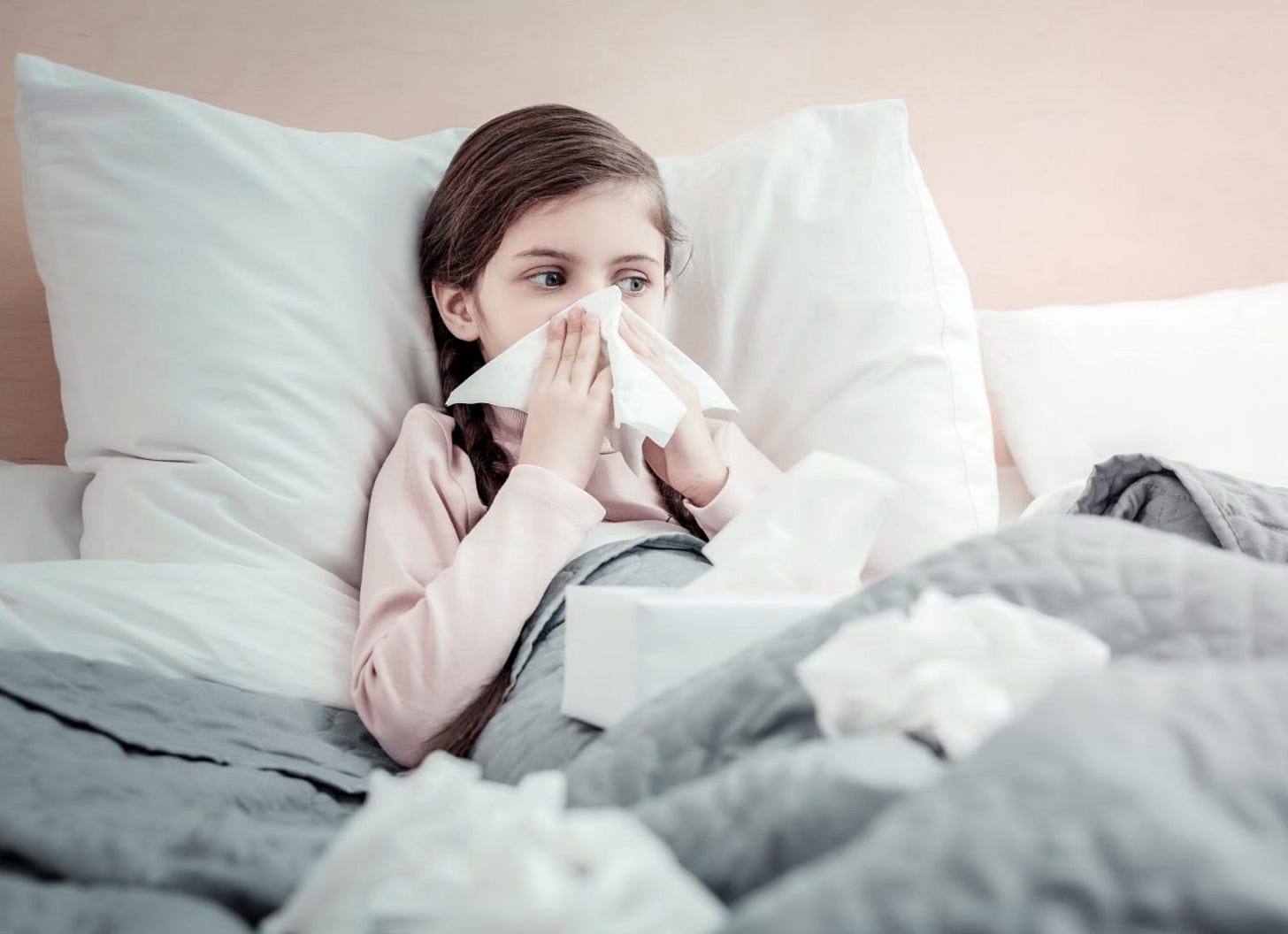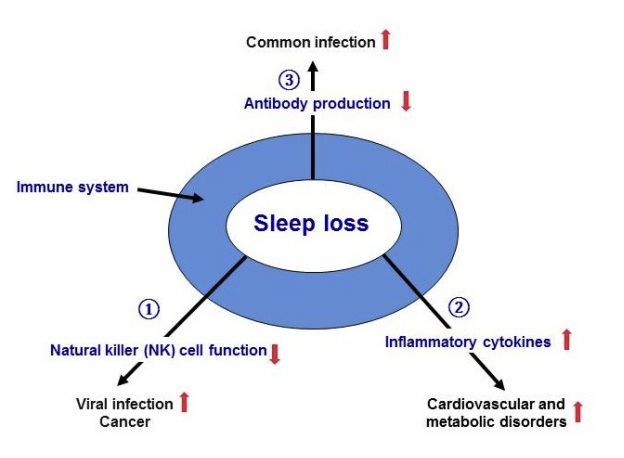The cold season survival kit
The cold season is here. Featuring also: colds, viruses and respiratory infections.
✅ COLD AND VIRUSES
The frequency of these conditions increases during the cold season because the body's natural defense systems in the upper respiratory tract are negatively affected when exposed to the cold weather. [1]
“How come, Cosmin?”
Valentin is a Wim Hof instructor and for many years he has taken ice baths, exposed himself to the cold, rode his bike while only wearing shorts and a T-shirt through the snow, told us about his experience…
…and now you come and tell us the opposite?
“How dare you?”
Controlled exposure to cold brings benefits, as Valentin told us, but adaptation to a cold climate should be done gradually.
In addition, controlled exposure involves exposure to cold conditions for only a limited period of time.
We often have the impression that the benefits brought to the body by a sudden, intense, short-term stimulus can be extended if we apply the same stimulus over and over again.
If you exercise with a high intensity for 20 minutes every day, you will indeed provide many beneficial stimuli for the body.
However, if you do the same thing for 10 hours a day, you will certainly feel it, and this stimulus will be a destructive one. It will range from excessively high inflammation and severe muscle fever to poor sleep and excessive appetite.
Think about how you felt after a mountain hike or after a whole day of walking while on a vacation when you usually don't get up from the couch for 16 hours a day.
Likewise, if you are not already used to cold exposure (trained), you will likely increase your risk of catching a cold.
✅ WHY WE CATCH COLDS
However, in order to catch a cold, several conditions are necessary.
First of all, you need to come into contact with the virus. This can only happen if you interact with someone who is already infected or you do not wash your hands.
In fact, the main gateway for viruses to enter the body is the nose, and recent studies show that a decrease in the temperature of the nose by 5 degrees can halve the response of the local defense mechanisms that exist in order to prevent the spread of viruses to the rest of the body. [2]
A second condition for catching a cold: your immune system is not strong enough to stop the virus and limit the symptoms of the cold.
This can happen either if:
the necessary conditions to support a strong immune system are not present, or
if your body has to fight several battles at the same time.
In general, if you have other additional conditions, including chronic ones, your exposure is higher than in healthy people.
✅ SELF-MEDICATION
It is true that you should not run to the doctor at the first sign of a cold, but practicing self-medication, especially if there are certain aggravating symptoms, is dangerous.
Remember that ONLY a doctor can help you in a situation where your health deteriorates.
Remember that any advice from the Internet can be not only useless, but often even harmful.
Therefore, before mentioning some of the things you could do to strengthen your immune system, I prefer to put safety first by drawing attention to a few important things.
✅ VISITING THE DOCTOR
Normally, your body should be able to fight off a cold or even a flu (caused by different viruses).
However, you should go to the doctor if a cold or flu gets worse and:
breathing problems occur;
dehydration appears;
you experience severe chest pain;
you have a high fever or one that lasts more than 4 days;
persistent and severe vomiting occurs;
you have severe headaches;
you experience fainting or feelings of fainting;
the symptoms experienced do not improve after 10 days from their onset.
✅ ANTIBIOTICS
Antibiotics are should definitely not be used in the case of a cold, as they are intended to combat bacterial infections and not viruses. [3]
Not only will they not help if you take them without consulting a doctor, but they can worsen your condition through possible side effects such as: intestinal problems, vomiting, dizziness, eczema, worsening of certain chronic problems.
A doctor can only recommend antibiotics if a cold or flu is aggravated by a possible bacterial infection, and the type of antibiotic will most likely be determined following laboratory tests.
✅ PARACETAMOL / IBUPROFEN
Fever-reducing drugs, which are sold by pharmacies without a prescription, should only be used in extreme cases.
Sure, it’s easier to take paracetamol or ibuprofen, reduce the fever, and get on with your life. But you’re more likely to prolong the duration and severity of your cold or flu by doing this. [4]
The New Zealand Medical Association’s medical journal, for example (page 126), discusses this topic in detail. [5]
The body raises its temperature to limit the development of viruses. The optimal development temperature for viruses is between 33 and 37 degrees Celsius. Above 37 degrees, replication becomes ineffective.
At a temperature higher than 37 degrees, the body mobilizes the immune system cells more effectively in order to attack viruses.
✅ SO WHAT DO I DO?
What do you think you can do if you feel sick, have a runny nose, sore throat, no appetite and maybe even a fever?
Unless you must flee from a cataclysm of major proportions, this is the perfect time to take a break.
Surely you have someone around who can help you in these moments.
For a few days, all you should do is stay in bed and sleep as much as possible. It's not for nothing that large companies have a few days off that they grant to employees for emergencies, in addition to any vacation days mentioned in the employment contract.
✅ LOTS OF REST
It is even more important to rest during the day because cold or flu symptoms tend to be worse at night and will prevent you from getting proper sleep. [6]
Cortisol is a hormone secreted by the body in order to stimulate various processes.
If your cortisol levels would be low during the day, you would have a hard time waking up, and you would be in a permanent state of drowsiness.
You may have heard of cortisol as the stress hormone, but its role is very important and simply keeping its level high for a very long time can produce unwanted effects.
Otherwise, cortisol should be high during the day and low at night.
Cortisol combats many of the negative symptoms of a cold or flu.
As a result, you will feel better during the day and much worse at night.
✅ COMBATING COUGH
Also during the night, it is very possible to cough more due to nasal secretions. Due to the horizontal position, the secretions end up accumulating in the throat or sinuses.
To prevent this problem, it would be advisable to sleep in a position where the head is raised by a few pillows, thus allowing the mucus to drain through the nose, without it getting stuck in the throat or sinuses.
Hydration is important in order to keep the mucus as fluid as possible, so try to consume enough water throughout the day. Also even before going to bed, or even at night, if possible.
I have noticed, in the case of my daughters, who have experienced many episodes of colds or the flu throughout their childhood, that the right position during sleep helps a lot.
Thus, they managed to get enough rest during the night, helping speed up recovery.
✅ AEROSOLS
Also in the case of my daughters, I noticed that in situations when they had a stuffy nose and excessive mucus, aerosols with a simple saline solution help a lot. They would clean the nose and sinuses effectively. [7]
When I didn't have a saline solution at hand, I used water that I boiled and cooled beforehand and added salt to.
If you don't have an aerosol device, you can spray salt water up your nose in order to clean it effectively. Obviously, you shouldn’t swallow the salt water.
Children will most likely not be able to do this, so an aerosol device would be the most suitable in their case.
For sore throats, gargling saltwater may be indicated.
✅ WHY SLEEP SHOULD BE THE MAIN CONCERN
Valentin has already written many articles about sleep: CLICK & CLICK.
However, I would like you to understand that sleep is not only important for losing weight or maintaining your figure, for looking good or for generally good performance, but it is also the most effective weapon in the fight against many diseases.
Basically, if you experience quality sleep, you ensure that [8]:
the body has enough antibodies to fight various infections; [9]
there are enough NK (Natural Killer) cells in the immune system to fight viruses or cancer cells; [10]
you have a reduced level of inflammation, thus decreasing the risks of metabolic and cardiovascular diseases. [11]
To give you an idea of the level of impact of inadequate sleep, there are studies that show that after a night with only 4 hours of sleep, the activity of NK (Natural killer) cells is reduced to less than three quarters of its normal capacity. [12]
The more nights of poor sleep you experience, the more exposed your body will be to viruses and the more at a disadvantage it is in the fight against cancer - a disease that develops over years, often without you even realizing it.
Sleep has such a profound impact on your immune system that health organizations around the world are investigating whether working night shifts is a possible risk factor for developing various types of cancer. [13]
So, make sure you get into the habit of getting enough sleep every day, not just when you have a cold or the flu.
In this article, you will read more about:
supplements,
whether or not to exercise,
whether alcohol or garlic helps,
bone broth,
the poor man's aspirin and
the paramount importance of hydration.
Click Upgrade to paid below with confidence. It’s only 0.2 Euros / day and you will constantly receive detailed articles on hot topics. Just like this one.
Keep reading with a 7-day free trial
Subscribe to Valentin Bunea English Edition to keep reading this post and get 7 days of free access to the full post archives.







